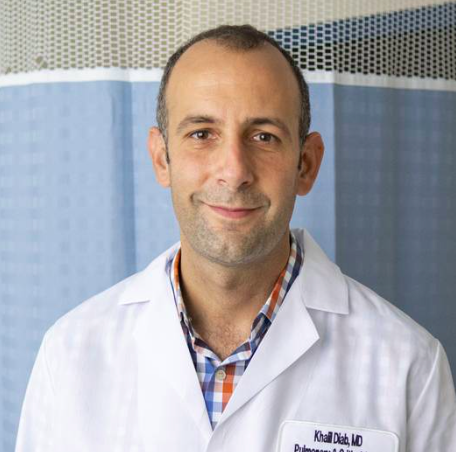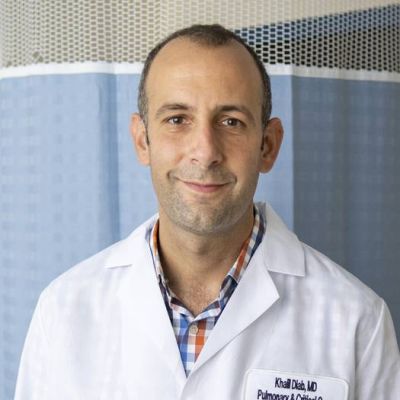
Dr. Khalil Diab
On a December morning in 2020, when the sun had not yet risen over the US capital, Khalil Diab was unable to go back to sleep.
The Lebanese-born physician, an associate professor of medicine at George Washington University, was thinking about what awaited his colleagues in Lebanon.
How could he start his work in the US when his head and heart were in Beirut, his hometown, which was hit hard by the 2020 port explosion and an unprecedented financial crisis?
One morning as he was listening to The Lebanese Politics Podcast, he had a lightbulb moment. Diab thought that a podcast would be an excellent way to give a voice to the medical staff of Lebanon, who were facing an unparalleled hardship.
This was when he launched the first episode.
‘I wanted the world to know what they are going through’
It is with strong emotion that this Lebanese doctor recalls the beginnings of this initiative and all that preceded it.
“The port explosion that shook Beirut in August 2020 forced my family and I to move back to the US, just one year after we returned to Lebanon. I saw this podcast as a way to stay connected to my colleagues, to continue to be part of their world,” Diab told L’Orient-Le Jour.
The Lebanese Physicians’ Podcast is dedicated to all healthcare providers.
“I wanted the world to understand what they are going through,” he said.
“They are unable to get medicine,” he said, referring to doctors, pharmacists, nurses, researchers, students and patients. “This is not to mention social workers.”
Every two weeks, a new episode is recorded on a new subject with Lebanese guests. Over the span of one hour, listeners take a closer look at the situation on the ground in the crisis-stricken country.
Are some interviews difficult to conduct?
“Not really. What is difficult is to hear all these realities and atrocities,” Diab said.
A space for medical documentation
One of the podcast’s most downloaded episodes focused on the psychological impact of the 2020 explosion on children and adolescents. It showed that high rates of anxiety, depression and post-traumatic stress disorder are significantly higher among the least advantaged children.
Another closely followed episode was one on disaster preparedness.
After the Beirut blast, researchers studied how hospitals coped with the event and what emergency medical services learned from this major disaster.
As for the situation of oncology services and cancer treatment, a tragic problem in Lebanon, the topic was discussed in an episode showing the consequences of the emigration of a large number of oncologists and the cruel lack of treatment. In another episode, Diab also lifted the veil on the medical situation of the LGBTQ+ community in Lebanon and ways to improve the sexual health of this marginalized group.
Most recently, Diab produced an episode focused on the harsh living conditions of domestic workers in Lebanon, the laws that govern their work, their rights and their access to health care. The supportive role played by KAFA and other NGOs that fight for the rights of domestic workers in the country was discussed at length.
On the eve of the recording of the 50th episode, how does Diab see the future? What would be his priorities? “When I started this venture, I didn’t realize that the podcast would become a medical documentation space accessible to everyone, at any time and for free. This archiving is a priority for me. In the future, however, I think that fundraising for NGOs, hospitals or social workers would be very important.”
Of course, this new project will represent additional work for this already busy doctor. But given his commitment to Lebanon, Diab will keep up his efforts.
This article was originally published in French in L'Orient-Le Jour. Translation by Sahar Ghoussoub
